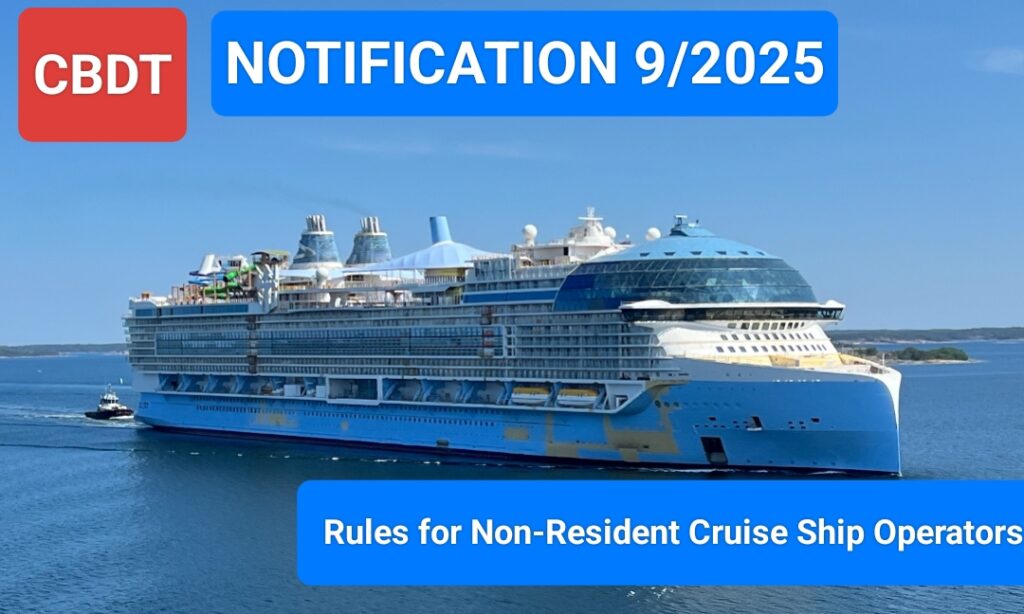These Tax Amendments are a Part of Comprehensive Measures to Attract Global Tourists and Foster Domestic Interest in Cruise Travel.
The Central Board of Direct Taxes (CBDT) has officially introduced key amendments to the Income-Tax Rules, setting forth the conditions for the application of the presumptive taxation regime aimed at non-resident cruise ship operators. The move, as outlined in a statement released on Wednesday, is a strategic effort to enhance investment and employment opportunities within India’s burgeoning cruise tourism sector.
Presumptive Taxation Regime for Cruise Ship Operators
In a significant step to boost the cruise shipping industry, the Finance Act, 2024, unveiled a presumptive taxation scheme specifically designed for non-residents engaged in cruise ship operations. Under this regime, certain income-related obligations are simplified, encouraging greater participation in India’s cruise tourism market.
Moreover, a crucial exemption has been granted concerning the income of foreign companies derived from lease rentals of cruise ships. This exemption applies when lease rentals are received from a related entity operating cruise ships in Indian waters.
Conditions for Presumptive Taxation Applicability
The applicability of this regime hinges on meeting specific criteria:
- Passenger Capacity or Ship Length: The cruise ship must either have a carrying capacity exceeding 200 passengers or a length of at least 75 meters.
- Purpose: The ship must primarily be utilized for leisure and recreational activities.
- Facilities: It should offer suitable dining and cabin accommodations for passengers.
- Voyage Requirements: The ship must operate on scheduled voyages or shore excursions that touch at least two sea ports in India or revisit the same port twice.
- Passenger-Centric Operations: The ship should be used for transporting passengers rather than cargo.
- Regulatory Compliance: Operations must adhere to guidelines and procedures established by the Ministry of Tourism or Ministry of Shipping.
The government’s proactive stance aligns with broader goals to position India as a premier cruise tourism destination. These tax amendments are a part of comprehensive measures to attract global tourists and foster domestic interest in cruise travel.
In a related initiative, the government has also launched the Cruise Bharat Mission, a visionary five-year plan aimed at revolutionizing cruise tourism. This mission targets:
- 1 Million Cruise Passengers: Aiming for significant growth in passenger numbers by 2029.
- Job Creation: Generating approximately 400,000 employment opportunities.
- Policy Support: Establishing a dedicated cruise development fund, easing cabotage regulations, and introducing financial incentives.
Union Minister for Ports, Shipping, and Waterways Sarbananda Sonowal emphasized that while India’s cruise shipping potential is immense, it remains largely untapped. The latest initiatives reflect a determined push to unlock this sector’s value.
With these robust strategies in place, India is set to emerge as a key player in global cruise tourism, harnessing its unique maritime heritage to attract travelers from around the world.
READ MORE
Bombay High Court Accepts GST Officials’ Apology for Premature Arrest Before Statement Recording
Latest GST Rate Notifications Issued as per Recommendations of the 55th GST Council

